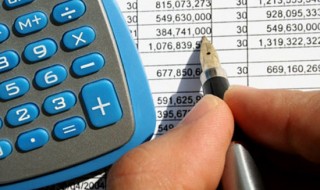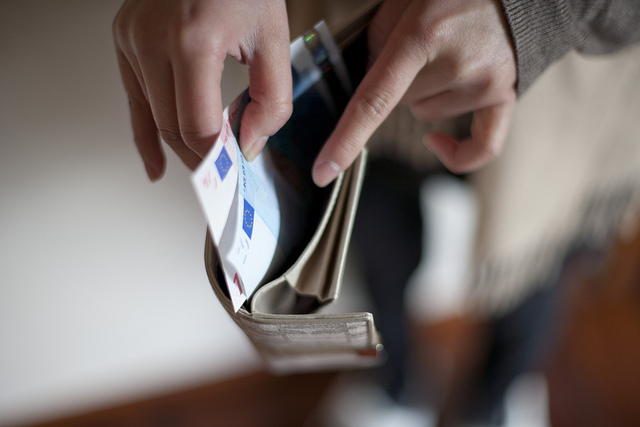Often enough, we find ourselves getting caught up with unpaid bills and empty wallets in the blink of an eye. We ask ourselves, “Where did all the money go?” We scramble to track back the cash outflow from our bank statements, collating the many receipts we could find stuffed in our wallets, and rack our brains to think back on where the majority of our money was splurged to.
The next moment, we spot something we desire and spend the money on impulse even with the knowledge of being short on cash at the back of your minds. And before we know it, we become cash-strapped.
So the question boils down to how do you think you can keep track of your personal finances and manage your spending well without feeling guilty or broke? We share some tips with you on ways to monitor your finances well.

(Source: moneypincher)
1. Start by Tracking Your Expenses
By means of a plain piece of paper or a computer spreadsheet, get the ball rolling by creating a Personal Projected Budget for each month of the year. Try searching online for free printable Budget Templates to obtain user-friendly and fuss-free spreadsheets.
We recommend that before you even begin jotting down a budget from scratch through filling in the areas with a guessed estimation, track down your current expenses beforehand to get a better overview of your spending. Record your every purchase down for a period of a month through as many forms of spending you can gather, such as your receipts and bank statements.
For example, you might have jotted down a reasonable sum of $150 for a budget hotel staycation. However, after doing a bit of online analysis, you might have realized that you require at least $250 for your preferred staycation. Do your research!

(Source: psoda)
2. Create a Budget
Now, you can get started with creating a budget you know you can stick to. You can further break down your list of expenses into sub-categories such as Transportation, Daily Necessities, Phone Bills, Insurance, et cetera and have a better overview of different areas your spending goes to. Start off aiming for short-term goals, before saving for your long-term goals such as retirement.
READ ALSO: Use Envelope Budgeting To Manage Your Money In Just 3 Simple Steps

(Source: reviewguy)
3. Monitor Your Spending
Begin to monitor and track your spending closely once you’ve decided to stick to your newly implemented Personal Projected Budget. Spend a reasonable amount of effort working on your target while resisting splurging on impulse. If you want something really badly, jot it down on your finances tracking list and work towards saving for the item.
For a more sophisticated approach, you can always track your expenses through the means of a software. Here are a few platforms that our team recommend. Of course, you can always choose a software you prefer and feel more comfortable with.
a) Mint
Mint is a free, web-based personal finance tool that allows users to plug in to their banks, investments and other financial accounts for an overview of your current financial position. We love their graphics that are not just easy to organize but also pleasing to the users’ eyes. Money saving just became a whole lot easier and more visually attractive to everyone!
b) You Need A Budget
Get off the financial roller coaster with an award-winning budget interface proudly presented by You Need A Budget. Although you need to pay for the usage of this software, it comes free for a month for anyone interested to try to see its suitability and whether it helps apply in your daily life.
c) BillMinder
Don’t worry about fumbling through your inbox for monthly statements now, because BillMinder helps organize statements into simple calendars to keep track of all due dates. It comes with charts and reports, notifications and more features that comes handy to users. Currently, the software doesn’t offer a free version, but you might wish to invest in a good software to save up better in the long run.
READ ALSO: 5 Free Money Management Apps to Increase Your Savings

(Source: wisegeek)
4. Adjust Your Budget
To perfect your Personal Projected Budget, make adjustments whenever necessary. For example, if a particular spending goal is easy to meet, try cutting it down further and saving a bigger sum or shifting that amount over to another category which requires setting a reasonably higher budget. To sum it all up, it’s all about setting your budget right and making effort to stick to your goals. We also recommend downloading the finance apps on your electronic devices to track your expenditure on-the-go!
Good luck! 🙂





